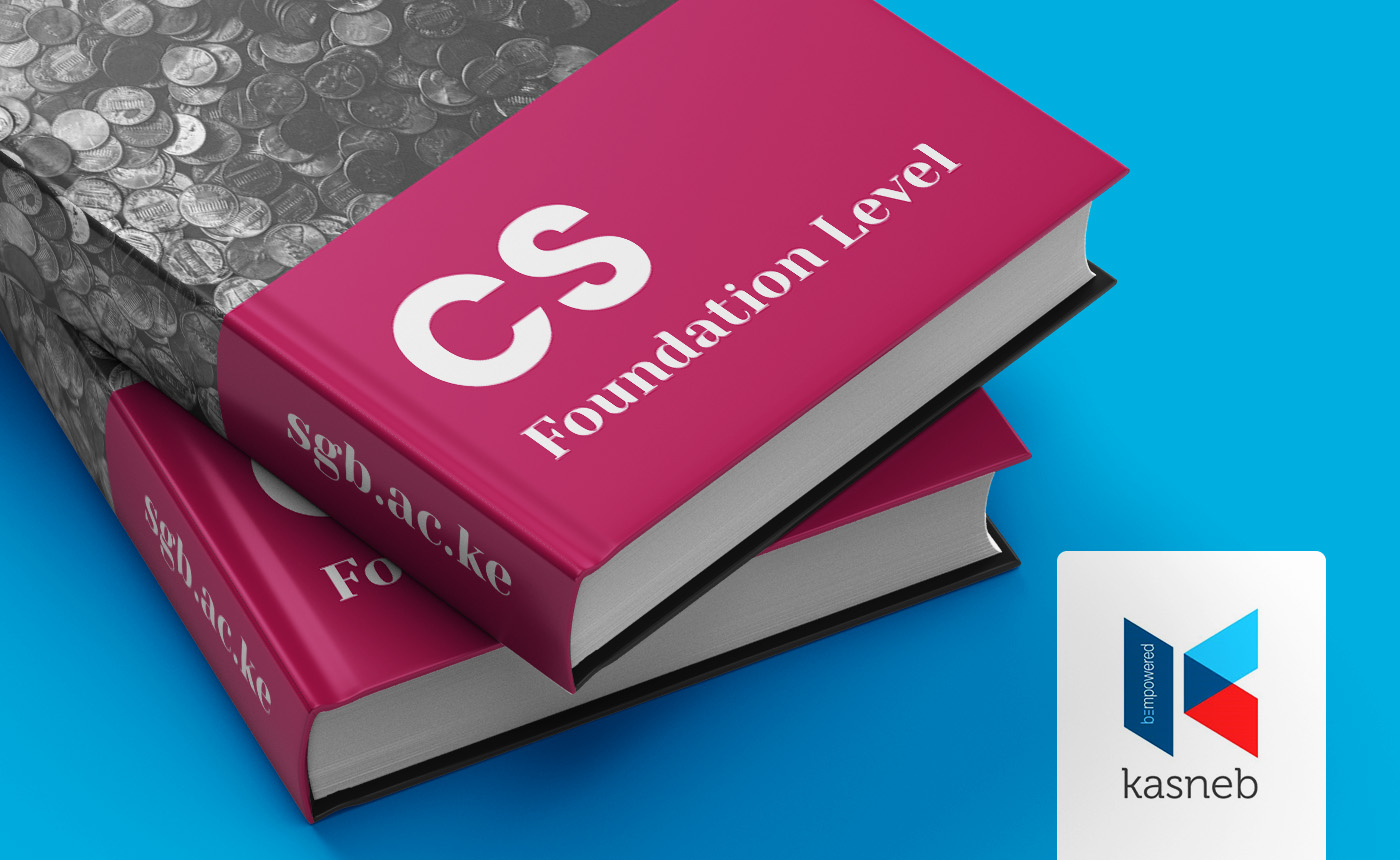Phone: +254 700 524589 | +254 782 524589 Email: [email protected]
5.00 (2 Ratings)
Paper 02: Communication Skills and Records Management

Course Curriculum
JAN – APR 2026 RECORDINGS
-
02 February
01:40:09
SEPT – DEC 2025 CLASS RECORDINGS
-
SEPT 22ND
01:55:56 -
OCT 27TH
01:45:05 -
NOV 10TH
01:40:03
MAY – AUG 2025 CLASS RECORDINGS
-
12/05/25
12:00 -
MAY 19TH
01:23:39 -
MAY 26TH
58:30 -
JUNE 9TH
01:18:54 -
JUNE 16TH
01:59:10 -
JULY 14TH
01:07:52
JAN – APR 2025 CLASS RECORDINGS
-
MAR 3RD
01:08:00 -
FEB 24TH
01:45:00 -
FEB 22ND
01:15:00 -
FEB 17TH
01:55:00 -
FEB 15TH
52:00 -
FEB 10TH
01:30:00 -
FEB 8TH
01:50:00
CLASS RECORDINGS MAY – AUG 2024
-
20/5/24
02:00:00 -
25/5/24
02:00:00 -
3/6/24
02:00:00 -
10/6/24
02:00:00 -
24/6/24
02:00:00 -
29/6/24
02:00:00 -
1/7/24
02:00:00 -
6/7/24
02:00:00 -
8/7/24
02:00:00 -
22/7/24
02:00:00 -
29/7/24
02:00:00
Assignments
-
-
CAT 1
-
CAT 2
1. Introduction to communication
1.1 Meaning of communication
1.2 Role of communication in an organisation
1.3 Elements of communication
1.4 The communication process
1.5 Principles of effective communication
1.6 Essential of an effective communication system
1.7 Barriers to effective communication
-
Lesson 1
02:00:00 -
Lesson 2
2. Types of communication
2.1 Formal and informal communication
2.2 Flow of communication in an organisation
2.3 Grapevine communication
2.4 Internal and external communication
2.5 Interpersonal and intrapersonal communication
2.6 Cross-cultural communication
-
Lesson 1
02:00:00 -
Lesson 2
3. Written communication and visual communication
3.1 Sentence construction and paragraph development
3.2 Business letters
3.3 Memorandum
3.4 Posters and notices
3.5 Forms and questionnaires
3.6 Circulars and newsletters
3.7 Advertisements and publicity materials
3.8 Documents used in business transactions - letter of enquiry, catalogue, quotation,
purchase order, invoice, credit note, debit note, others
3.9 Job application cover letter, curriculum vitae and resume
3.10 E-mails
3.11 Visual communication - graphs/charts/tables/diagrams/pictures
-
Lesson 1
02:00:00 -
Lesson 2
4. Oral communication and non-verbal communication
4.1 Meaning of oral communication
4.2 Importance of oral communication
4.3 Means of oral communication-face to face and telephone conversations
4.5 Effective listening - the listening process, principles of effective listening, listening
techniques, barriers to effective listening
4.6 Interviews - types, purpose, preparation and conduct of interviews,
4.7 Persuasive communication - meaning, objectives, creating persuasive messages,
approaches to persuasion
4.8 Assertive communication
4.9 Meaning and importance of non-verbal communication
4.10 Forms of non-verbal communication
4.11 Effective use of non-verbal communication
4.12 Barriers to effective non-verbal communication`
-
Lesson 1
02:00:00 -
Lesson 2
-
Lesson 3
5. Records management systems
5.1 Definition of records management system
5.2 Importance of an effective records management system
5.3 Classification of records and indexing
5.4 Features of an effective records management system
5.5 Principles of effective records management systems
5.6 Records management process
5.7 Postal and courier services
-
Lesson 1
02:00:00 -
Lesson 2
6. Records lifecycle
6.1 Records creation
6.2 Records distribution
6.3 Active storage
6.4 Records retention
6.5 Disposal of records
6.6 Archival of records
6.7 Electronic records management systems
6.8 Maintaining security and confidentiality of records
6.9 Disaster management system and recovery procedure
-
Lesson 1
02:00:00 -
Lesson 2
7. Public speaking and presentation
7.1 Effective presentation skills
7.2 Audience analysis
7.3 Selecting and researching the topic
7.4 Preparation and organisation of an effective presentation
7.5 Structure of presentation
7.6 Presentation aids
7.7 Public speeches - structure and delivery of public speeches
-
Lesson 1
02:00:00 -
Lesson 2
-
Lesson 3
8. Group and team communication
8.1 Group communication networks
8.2 Team communication
8.3 Managing team communication- Resolving conflicts and disagreements
8.4 Communicating in virtual groups and teams-group e-mails, WhatsApp groups,
social media, corporate blogs, online surveys
8.5 Meetings and minutes writing
8.6 Conferences and symposia
8.7 Use of virtual meetings platforms; Google Meet, Zoom and MS Teams
-
Lesson 1
02:00:00 -
Lesson 2
9. Report and proposal writing
9.1 Types and purpose of reports
9.2 Structure and content of reports
9.3 Types and uses of proposals
9.4 Structure and content of proposals
9.5 Writing of formal reports and proposals
-
Lesson 1
10. Information technology and communication
10.1 Role and impact of technology in communication
10.2 Communication networks- internet, intranet and extranet
10.3 Teleconferencing and video conferencing
10.4 Webinars
10.5 Wireless technology
10.6 Online surveys
-
Lesson 1
-
Lesson 2
11. Ethics in communication
11.1 Role of ethical communication in an organisation
11.2 Principles of ethical communication
11.3 Ethical issues in communication
11.4 Enhancing ethical communication in an organisation
11.5 Factors influencing ethical communication
11.6 Ethical dilemmas in communication
11.7 Handling ethical dilemmas in communication
11.8 Ethics relating to virtue meetings
-
Lesson 1
02:00:00 -
Lesson 2
communication skills and record management class links
-
Monday Class
00:00 -
Saturday Class
00:00
Revisions
-
Lesson
02:00:00
PAST PAPERS
-
UPDATED PAST PAPERS CHECK UNDER EXERCISE FILES
Student Ratings & Reviews
5.0
Total 2 Ratings
5
2 Ratings
4
0 Rating
3
0 Rating
2
0 Rating
1
0 Rating
good
KSh7,500.00
-
LevelAll Levels
-
Total Enrolled26
-
Last UpdatedFebruary 3, 2026
-
CertificateCertificate of completion
Hi, Welcome back!
A course by
Requirements
- KCSE: C+
- KASNEB technician, diploma or professional examination certificate
- Degree from recognized university
- Other diplomas as may be approved by KASNEB
